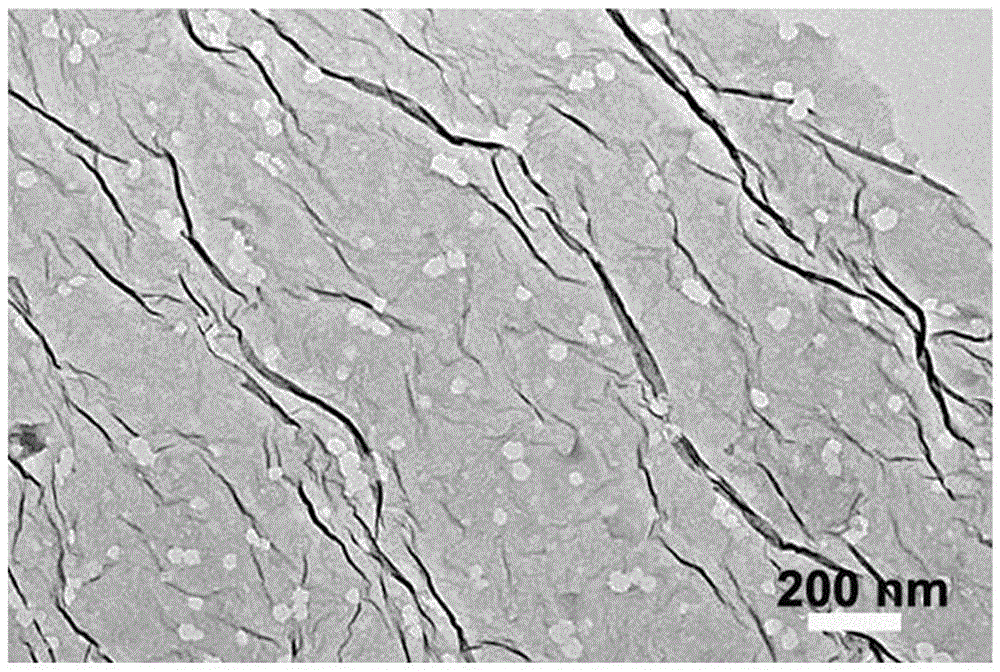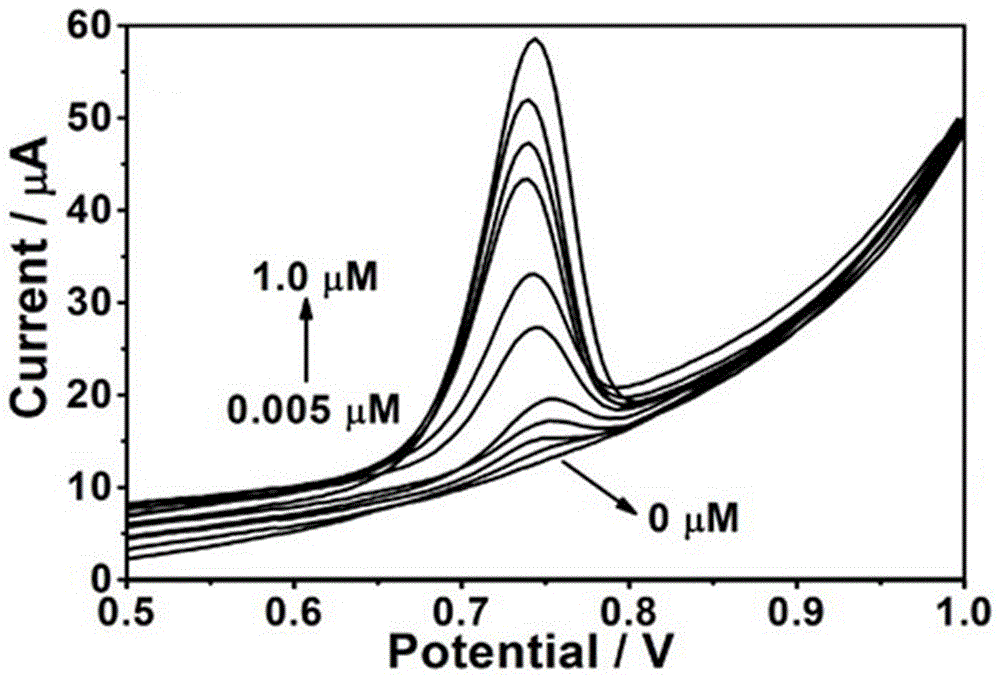Method for detecting amaranth in food by using porous graphene
A technology of porous graphene and amaranth, applied in the direction of measuring devices, instruments, and material analysis through electromagnetic means, to achieve uniform pores, good detection effect, and broad application prospects
- Summary
- Abstract
- Description
- Claims
- Application Information
AI Technical Summary
Problems solved by technology
Method used
Image
Examples
Embodiment Construction
[0019] The specific implementation manners of the present invention will be further described below.
[0020] A method utilizing porous graphene to detect amaranth in food, comprising the steps:
[0021] (1) Preparation of porous graphene
[0022] Dissolve a certain amount of nickel(II) nitrate powder in 15mL deionized water, and then dissolve 10mL with a concentration of 4mg·mL under stirring conditions -1 The graphite oxide (GO) solution was added to the nickel nitrate solution above. Control the mass ratio of GO to Ni element to be 10:1. After the above mixed solution was sonicated for 10 min, the mixed solution was quickly transferred into a freeze dryer, vacuum-frozen with liquid nitrogen at a temperature below 0 °C for 48 h, and then the obtained powder was heated in a tube furnace at a rate of 10 °C / min. Heating from room temperature to 800 °C, and keeping it in a flowing Ar atmosphere for 1 h, a black solid powder was obtained. Finally, the obtained black powder wa...
PUM
 Login to View More
Login to View More Abstract
Description
Claims
Application Information
 Login to View More
Login to View More - R&D
- Intellectual Property
- Life Sciences
- Materials
- Tech Scout
- Unparalleled Data Quality
- Higher Quality Content
- 60% Fewer Hallucinations
Browse by: Latest US Patents, China's latest patents, Technical Efficacy Thesaurus, Application Domain, Technology Topic, Popular Technical Reports.
© 2025 PatSnap. All rights reserved.Legal|Privacy policy|Modern Slavery Act Transparency Statement|Sitemap|About US| Contact US: help@patsnap.com



